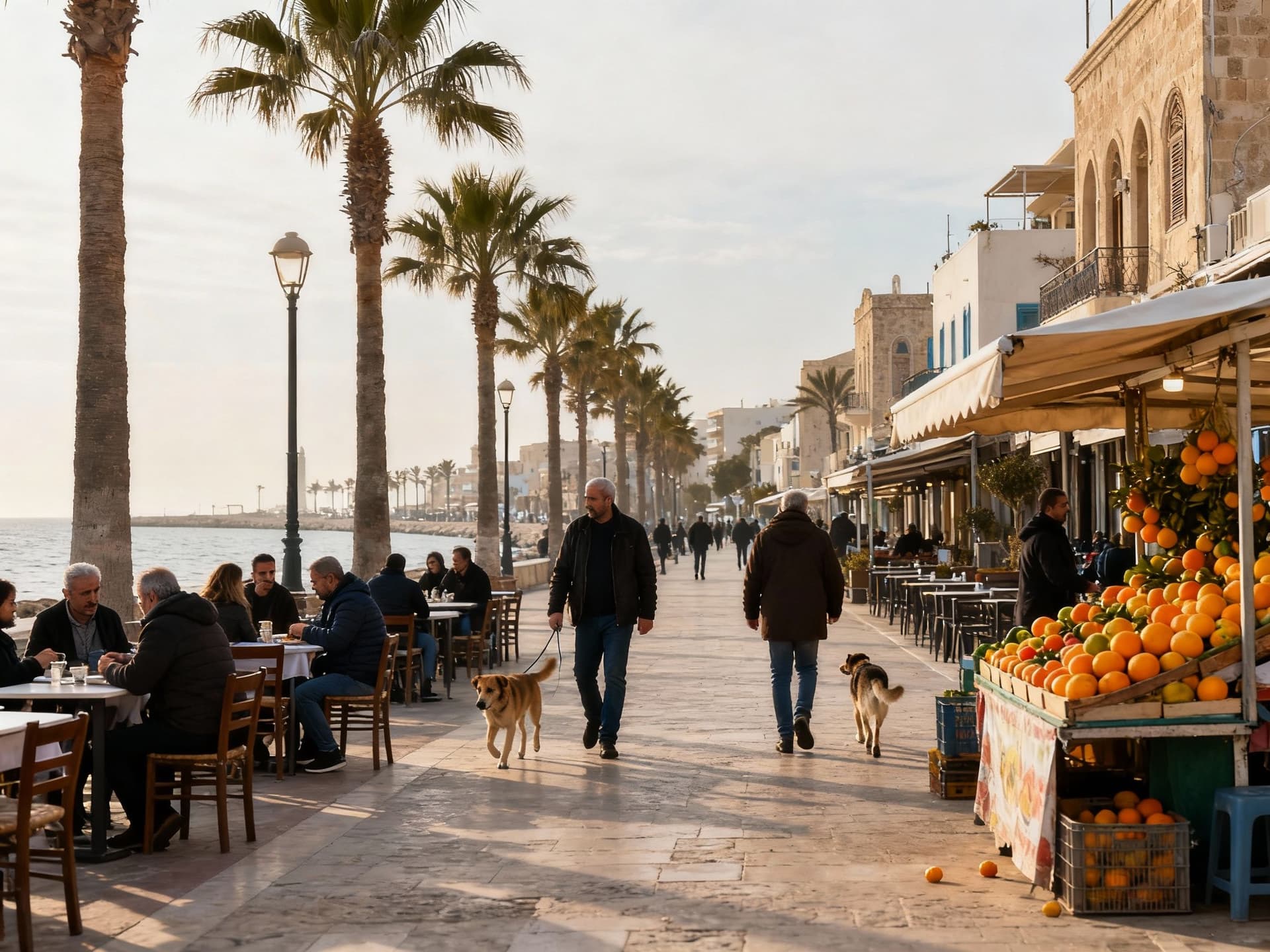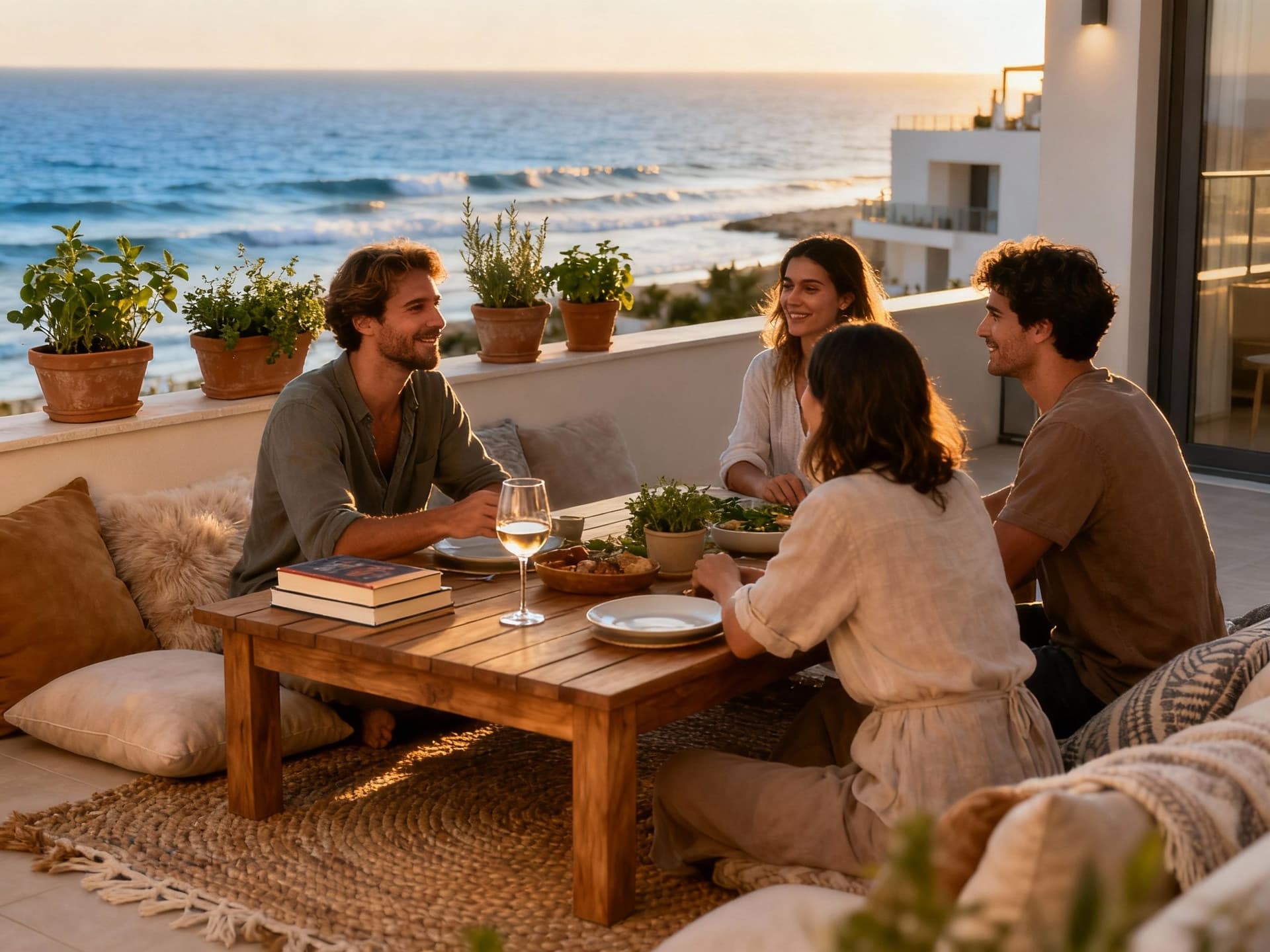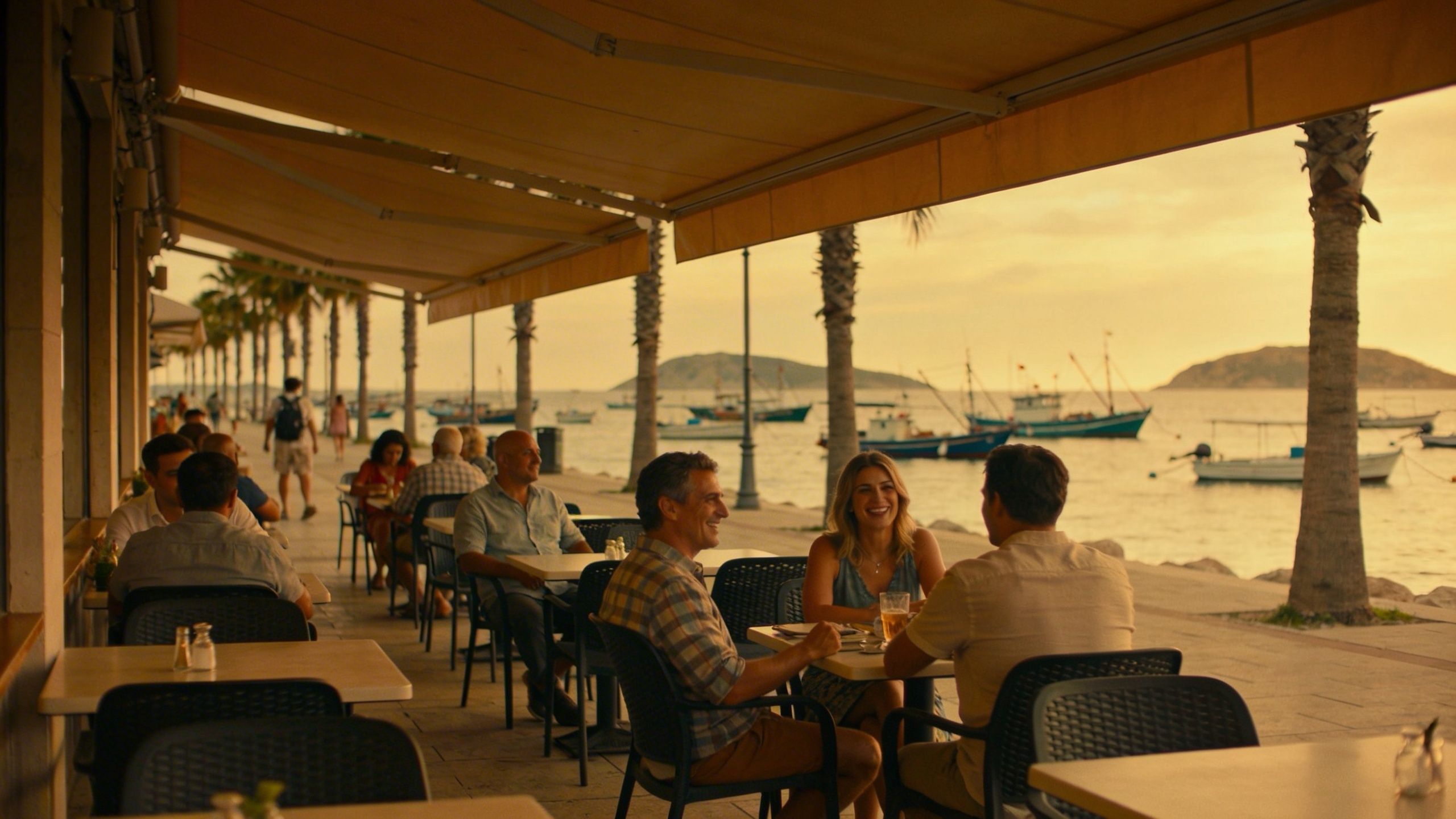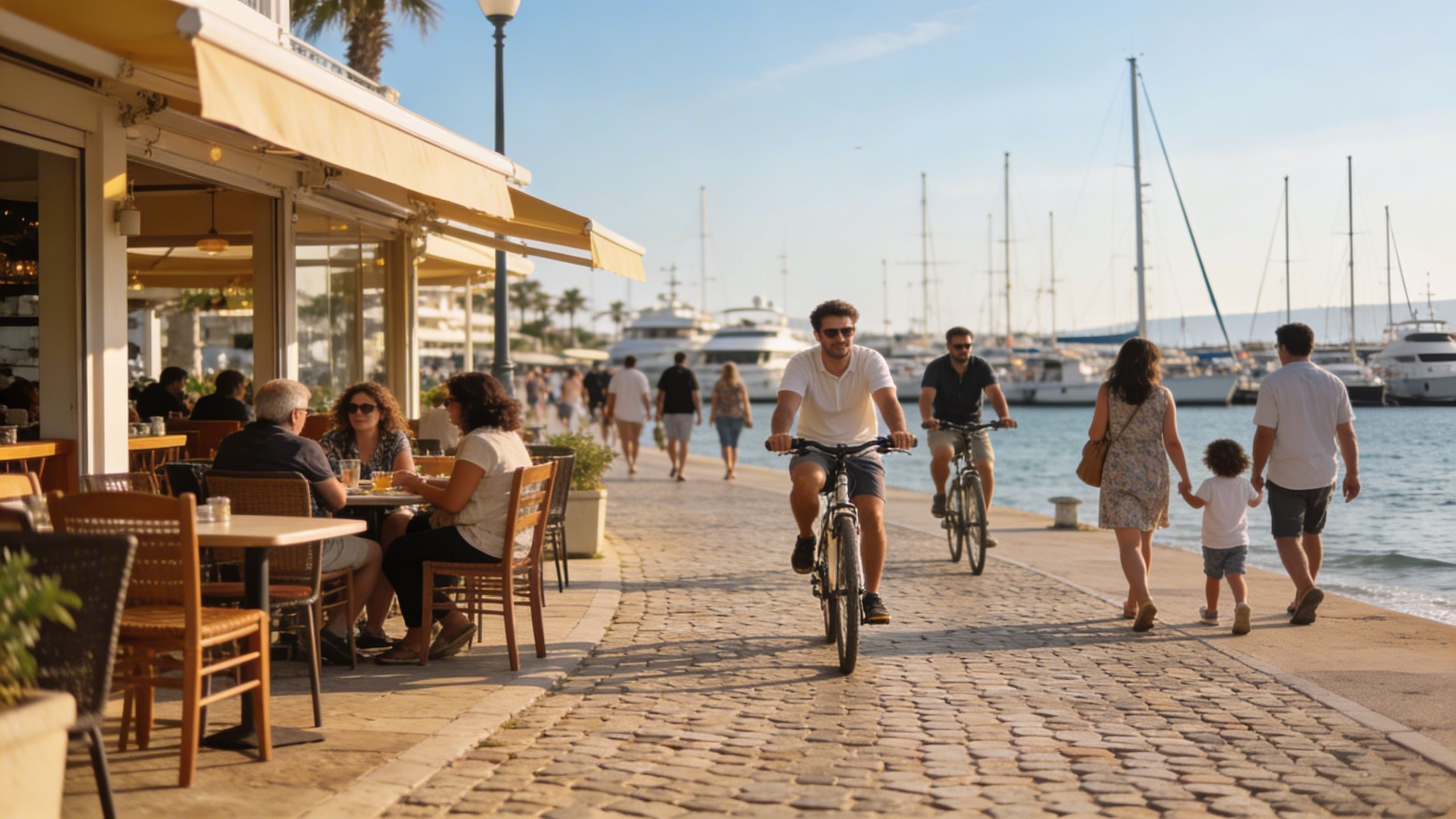Why Buying in Cyprus Outside Summer Wins
Buy in Cyprus off‑season: align new‑build handovers, quieter neighbourhoods and developer incentives to secure lifestyle value with data-backed timing.
Imagine sipping espresso at a café on Limassol’s Anexartisias Street in late November: the coast is quieter, developers are showing finished show-flats, and prices are being negotiated with less theatre than in high summer. That quieter season is where data and the development pipeline converge—off‑peak buying in Cyprus often lines up with new-build deliveries, planning clarity and improved negotiating leverage. Recent market analysis shows transaction value and development activity remain strong—this guide explains why buying outside the summer tourist rush can be the smarter move.
Living Cyprus: the year‑round rhythm

Cyprus lives by seasons, but not the way holiday brochures suggest. Winters are mild and community‑focused: neighbourhood cafés fill with locals trading recipes, construction crews push projects toward completion, and markets brim with citrus. Summers bring bustle, higher short‑term rental income and crowded viewings—helpful for gauging tourism demand, but misleading for gauging true livability and long‑term value.
Where to feel the island: coastal pulse and mountain calm
Limassol offers a cosmopolitan shoreline with new towers and marina projects; Paphos mixes archaeological streets and growing resort developments; Larnaca is quieter with an improving airport link and a newly active waterfront; Nicosia is inland, where apartment demand is driven by local professionals. Each place has a different development cadence—Limassol sees large, high‑value launches; Paphos attracts lifestyle refurbishments and boutique schemes; Larnaca’s pipeline includes mid‑rise residential blocks near transport upgrades.
Food, markets and daily life that sell the dream
Picture Saturday morning at the Larnaca municipal market, a noon meze at To Kafe Tis Chrysanthi’s shaded terrace, then a late‑afternoon walk on Mackenzie Beach. These everyday scenes matter to buyers: proximity to markets, wind‑protected terraces and year‑round cafés are often the difference between a holiday rental and a place you want to live.
- Lifestyle highlights to scout during an off‑peak visit:
- Anexartisias Street, Limassol — cafés, bakeries and weekday life
- Paphos Harbour and Old Town — evening tavernas and quieter winters
- Larnaca waterfront (Finikoudes to Mackenzie) — airport access and improving waterfront projects
Why off‑season buying lines up with the development pipeline

Developers often complete units and release end‑of‑year inventory in autumn and winter. Industry reporting and government transaction statistics show Cyprus recorded record transaction values in 2024 and sustained momentum into 2025—this means many projects are moving from planning to completion and vendors are motivated to close deals before the new build pipeline refreshes pricing benchmarks. Understanding delivery dates and permit cycles gives buyers leverage.
Property types in the pipeline and what they mean for living
Expect a mix: coastal apartment blocks with communal amenities, boutique villa clusters in Paphos, and transit‑oriented mid‑rise schemes in Larnaca and Nicosia. New builds provide modern insulation, covered terraces for winter winds and integrated tech for remote work. But finished quality, warranty terms and homeowners’ association rules differ—inspect those carefully before signing.
How local infrastructure upgrades change pipeline value
Major upgrades—airport capacity increases in Larnaca and Paphos, and public investment tied to tourism and commercial zones—shift developer focus toward areas with improving connectivity. When an airport or road upgrade is due, nearby new builds usually come with stronger long‑term rental and resale prospects.
- How to use seasonality and pipeline data when making an offer:
- Schedule viewings in autumn/winter to see how a neighbourhood functions off‑season; fewer tourists reveal real noise, services and daily life.
- Match completion dates with your cashflow: developers often lower asking prices or offer incentives near handover.
- Request building warranties and snag lists—winter visits make defects easier to spot (insulation, heating, damp).
Insider knowledge: expats, agencies and the unexpected tradeoffs
Expat owners tell the same story: the island seduces in summer, but daily life is decided in autumn and winter. Local agencies that stay active year‑round are best placed to flag pipeline shifts, off‑market handovers and developer incentives. Recent half‑year figures show rising transaction volume into 2025—use those trends to time offers and locate stock that suits year‑round living rather than seasonal income alone.
Cultural cues that change where you buy
Cypriots prioritise community connections and outdoor social spaces. Properties with communal courtyards, shaded verandas and proximity to small grocers integrate faster into local life. Expect slower bureaucracy for some permits than elsewhere in Europe; patience and a local agent fluent in Greek and English will speed things up.
Long‑term lifestyle factors to weigh
Think beyond headline yields: consider airport access for family visits, medical facilities for older buyers, and community seasonality if you want year‑round life. New developments close to upgraded infrastructure usually absorb faster into the market, but gated resorts can feel isolating outside high season.
- Red flags to watch in developers and contracts:
- Vague completion dates without milestones or penalties
- Unclear homeowners’ association budgets and reserve funds
- Limited warranty coverage or ambiguous snag remediation processes
Practical next steps for buyers who want the lifestyle and the data
- First, review official transaction and permit data to align neighbourhood choice with supply trends; second, visit off‑season to test the lifestyle; third, work with an agency that tracks development handovers and provides up‑to‑date completion schedules; fourth, negotiate incentives tied to practical milestones (snag list completion, service activation).
Conclusion: Cyprus rewards buyers who look past the summer theatre. The island’s new‑build pipeline, improving infrastructure and community rhythms create tangible opportunities in autumn and winter viewings. If you want the life—the cafes, year‑round beaches, local markets—pair that vision with data on completions, transactions and developer credibility. Book an off‑peak trip, bring a local agent, and let the quieter season show you how the island really lives.
Norwegian market analyst who relocated to Mallorca in 2020. Focuses on data-driven market insights and smooth relocation for international buyers.


